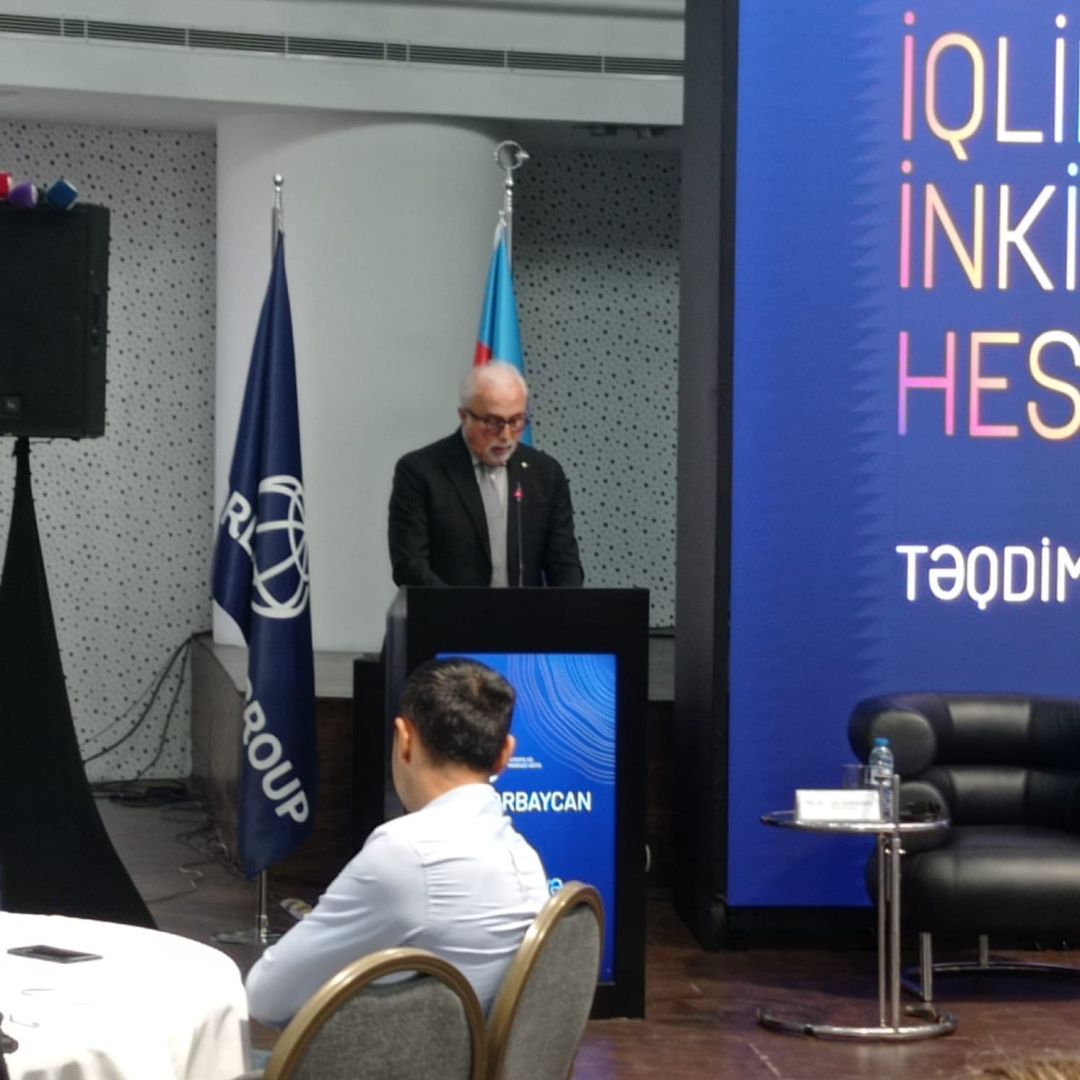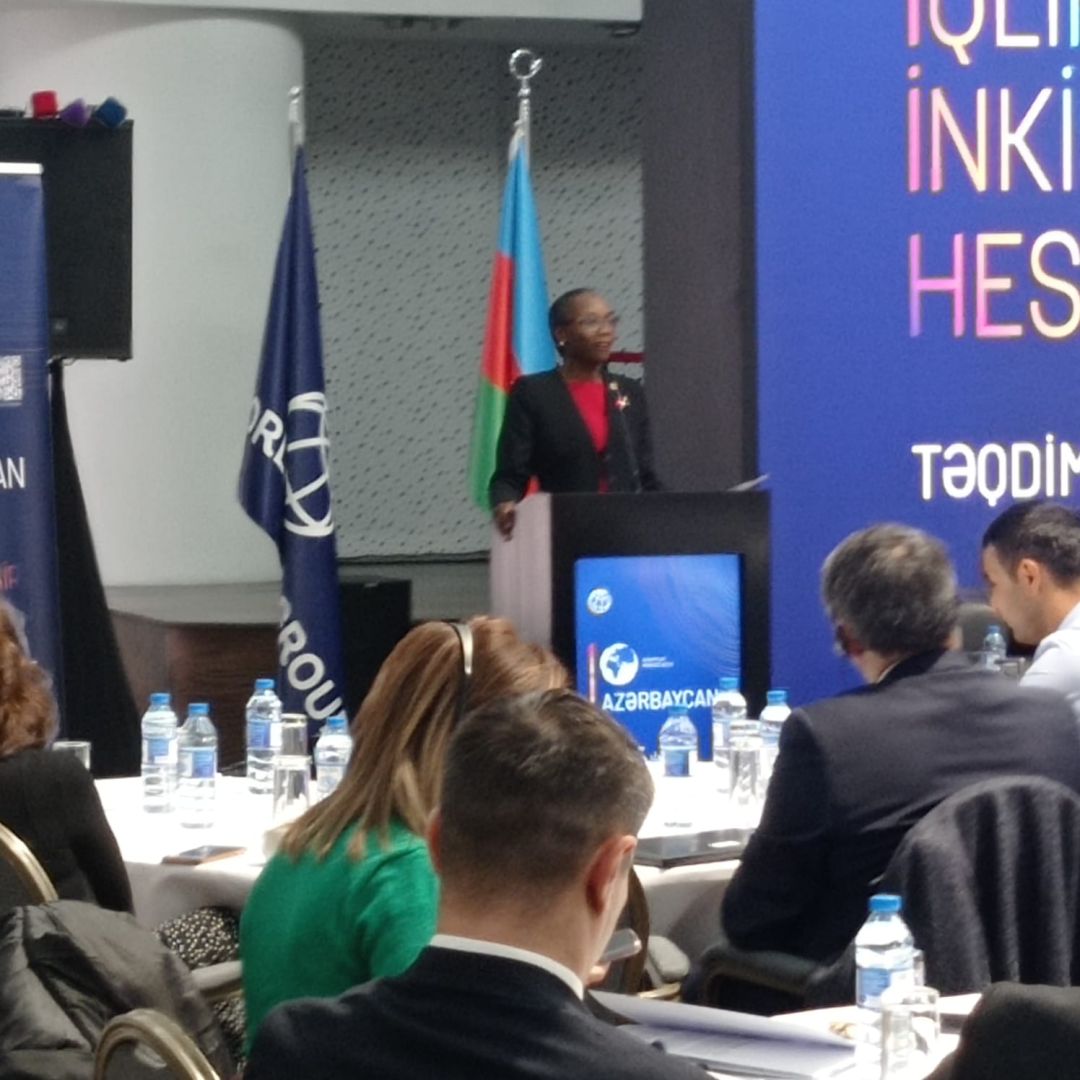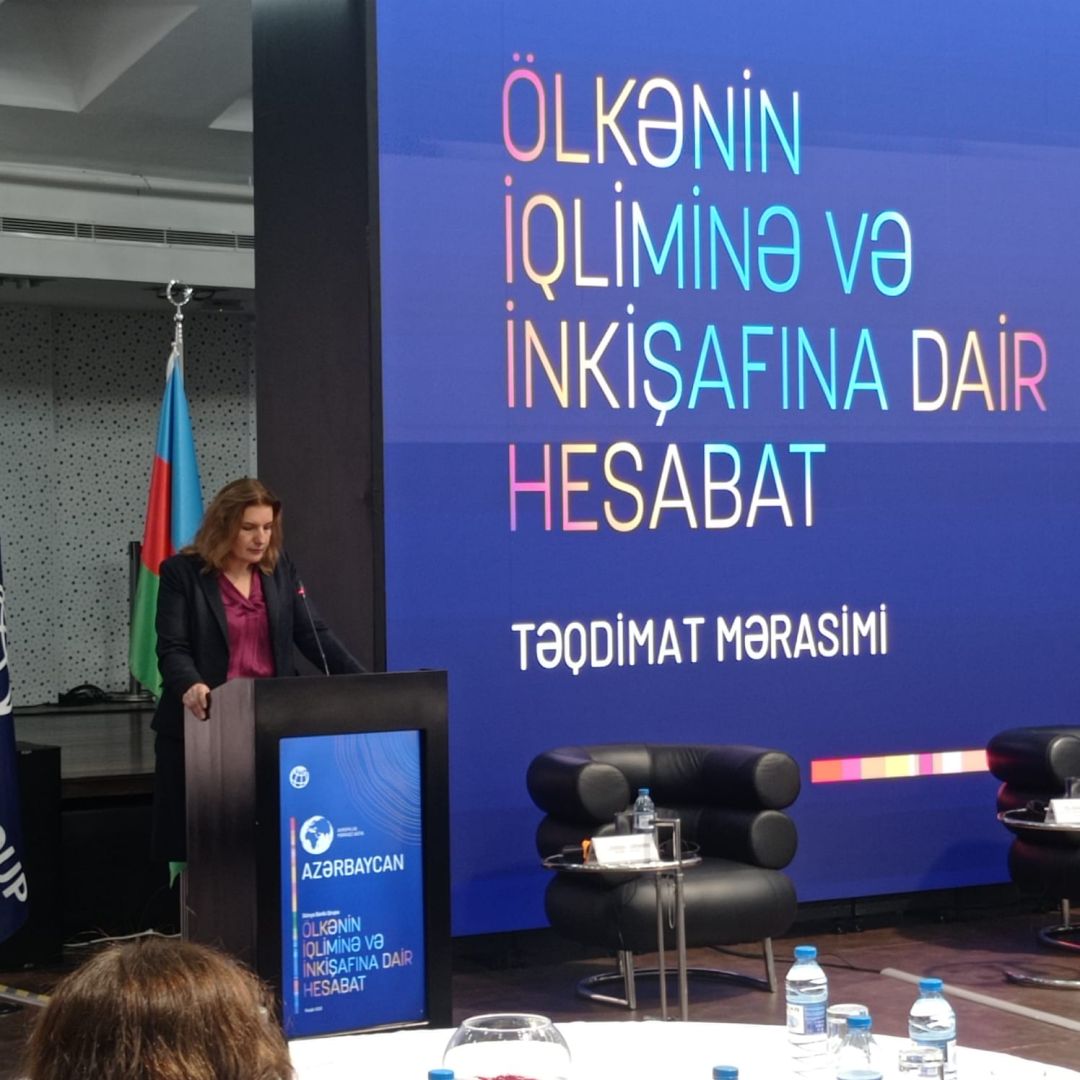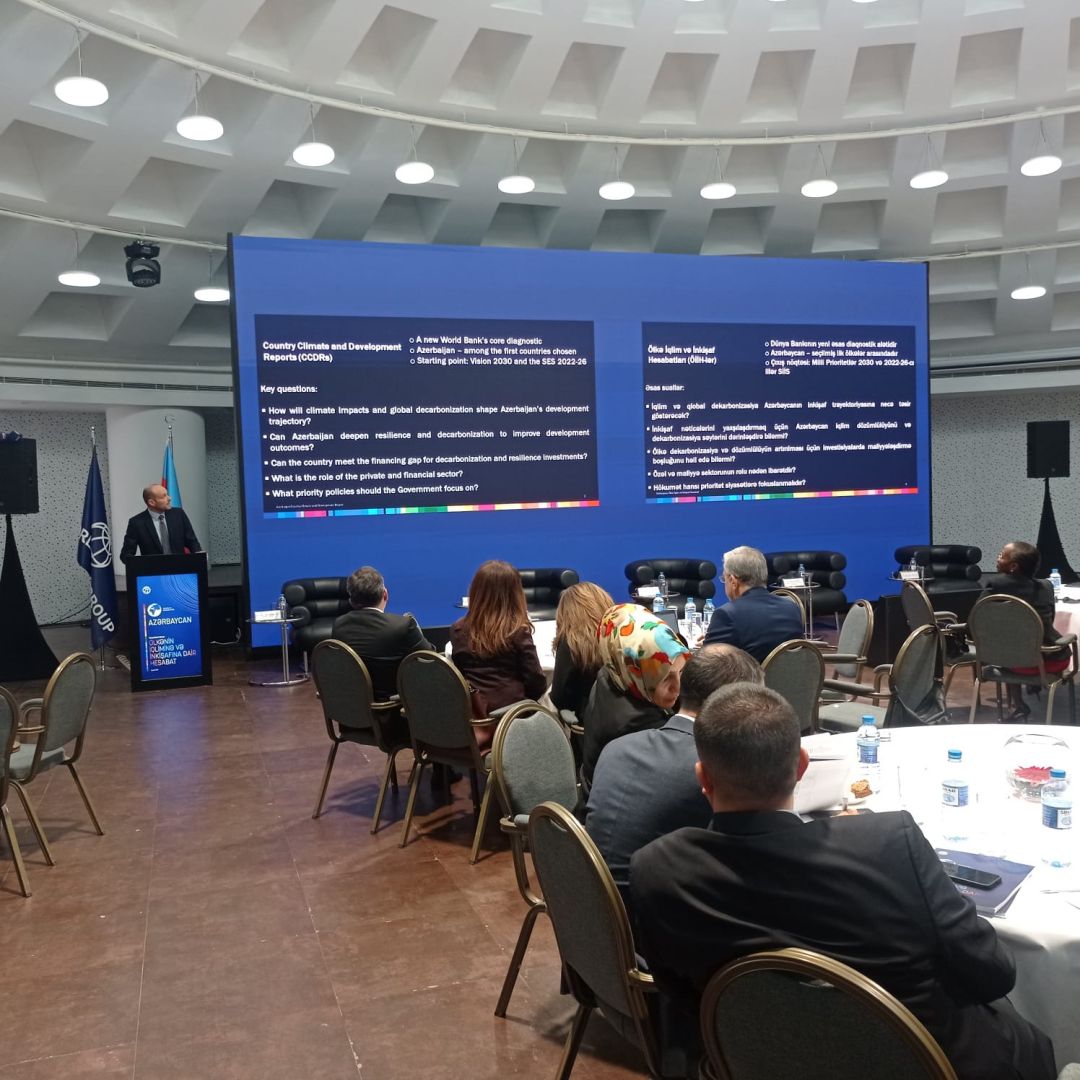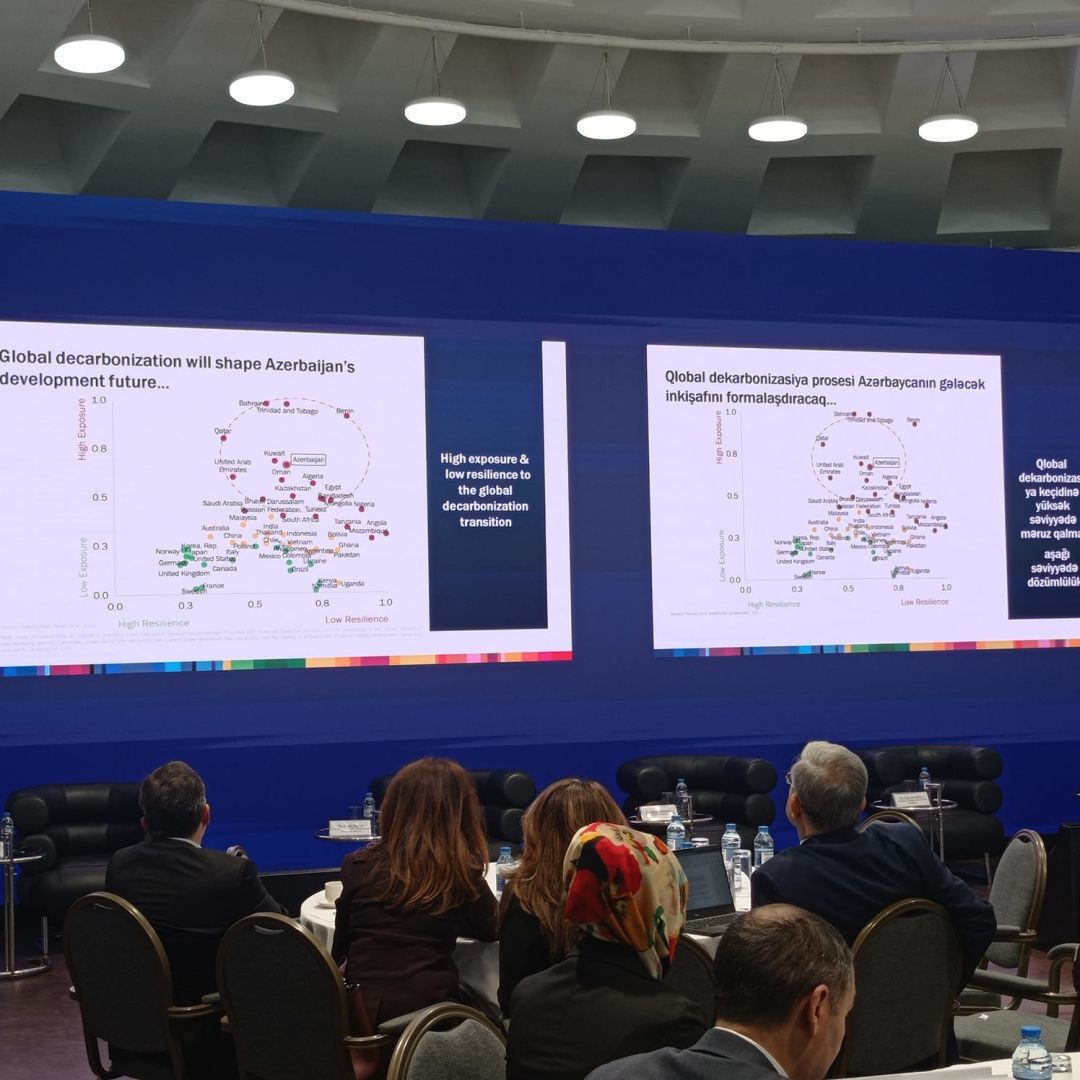World Bank Group presents report on Azerbaijan's efforts to transition to decarbonization [PHOTOS]
![World Bank Group presents report on Azerbaijan's efforts to transition to decarbonization [PHOTOS]](https://www.azernews.az/media/2023/11/29/19788d7a-e0d4-44bb-84fc-7422c892b268.jpg)
Today, the World Bank Group held a presentation conference on the Azerbaijan Country Climate and Development Report, concerning future risks and measures to minimise the risks emerging from the global low-carbon transition.
According to Azernews, Niyazi Safarov, adviser to the Minister of Economy, who opened the event with his opening speech, first talked about the green energy potential of the country and the large-scale projects implemented in Azerbaijan’s districts.
Then, World Bank Country Director for South Caucasus Roland Pryce, who spoke at the event, noted the importance of Azerbaijan's transition to decarbonization amidst the rising risks of climate change.
Further, Ivana Fernandes, IFC regional manager, spoke about the importance of the transition to decarbonization and emphasised the importance of time in this matter. She specifically noted that Azerbaijan has set an important goal of reducing greenhouse gas emissions by 35 percent by 2030 and by 40 percent by 2050.
Later, Andrea Liverani, the author of the Azerbaijan Country Climate and Development Report (CCDR), presented the report and noted the importance of the country, emphasising that Azerbaijan is one of the first countries to prepare such a report. He also mentioned, one by one, the sectors (from agriculture to tourism) that can be subject to climate change, as well as giving detailed information about the risks they may face in the future.
Moreover, the report indicates that the country's economy is largely dependent on the oil and gas sector, which accounts for 1/3 of the gross domestic product (GDP) and 90% of exports. As oil reserves dwindle and are expected to last another 25 years, comprehensive and effective decarbonization efforts will help diversify the economy and promote new growth drivers such as green hydrogen and agriculture. increase due to extreme weather events. "At the same time, the country's natural resources are being damaged due to soil degradation, desertification, and overgrazing, which has a negative impact on agriculture. At the same time, oil and gas production also affects soil degradation and water pollution.
“Regardless of the pace of global decarbonization efforts, accelerating investments in decarbonization is in Azerbaijan’s interests. These efforts are also consistent with national economic diversification goals. CCDR provides a practical path for the country to move from setting goals to implementing measures that can protect Azerbaijan's economy and people from the negative impacts of climate change,” said Roland Price, World Bank Country Director for the South Caucasus.
The document states that, although Azerbaijan has signed the Paris Agreement on climate change, it has not yet made any commitments to bring the country's emissions to net zero. However, the country plans to reduce greenhouse gas emissions by 35% from 1990 levels by 2030," he said. and by 2050—and set national targets to reduce carbon dioxide emissions by 40% by 2018. Including energy and water, “sectors critical to the transition to a green economy are dominated by state-owned enterprises, accounting for half of the country's workforce. Economic diversification and a more dynamic private sector are needed to define and implement a clear course for decarbonized economic development.
The decarbonization and sustainability measures outlined in the report will require a major investment of about US$44 billion, or about 3.2% of GDP, by 2060, when the global economy is expected to move to “net zero” emissions. A significant portion of these costs must be covered by commercial and private sector funding.
To ensure the transition to a low-carbon economy, Azerbaijan will be comfortable pivoting its economy away from fossil fuels and leveraging private capital and know-how, but time is an important factor in this. Taking advantage of the opportunities highlighted in this report will help the country build a future-proof economy and protect its population from climate change,” said Ivana Fernandez Duarte, Regional Manager for the South Caucasus at the International Finance Corporation (IFC).
As part of the government's 2022–2026 socio-economic development strategy, a gradual but sustainable shift away from fossil fuel subsidies, especially if accompanied by targeted social protection measures to protect the poorest, will drive the transition. be one of the main factors in achieving success.
---
Follow us on Twitter @AzerNewsAz
Here we are to serve you with news right now. It does not cost much, but worth your attention.
Choose to support open, independent, quality journalism and subscribe on a monthly basis.
By subscribing to our online newspaper, you can have full digital access to all news, analysis, and much more.
You can also follow AzerNEWS on Twitter @AzerNewsAz or Facebook @AzerNewsNewspaper
Thank you!


